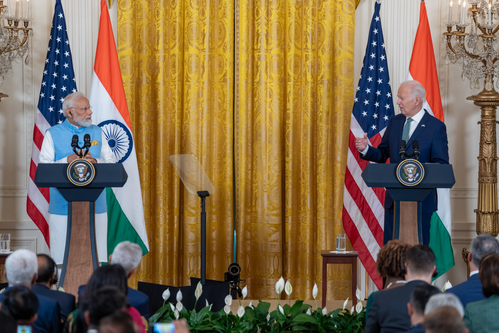America
US Anticipates Strong Relations, Human Rights Dialogue with India Post-Elections

June 5 :
Reports from Washington, DC - Following elections in which Prime Minister Narendra Modi appeared to retain power, albeit with an unexpectedly narrow majority, the United States expressed its expectation that India and the United States will maintain close ties and engage in conversations regarding human rights issues on June 4.
It appeared like Modi would be able to keep his position as leader of the ruling coalition, but voters were unconvinced and the Hindu nationalist Bharatiya Janata Party lost its absolute majority for the first time in ten years.
The United States and India will maintain their strong relationship, in my opinion. A representative from the State Department said reporters that they expect the strong collaboration to persist on both the official and personal levels.
While Modi was in the United States last year, the two nations announced several agreements regarding semiconductors, vital minerals, technology, defence, and space cooperation. In addition, the State Department has stated that it will keep bringing up human rights issues. Political experts claim that Washington is hoping India will serve as a counterbalance to an expansionist China, which is why it is hesitant in publicly criticising the country, though it has done so on occasion.
Just like we have done in India when we feel strongly about human rights, we do it publicly when we do not. We convey them straight to the Indian government. According to the State Department spokesperson, this is something that has been done and will be done again, just as with other countries.
The Modi administration claims it is working for the common good of all Indians and rejects accusations of bias against political prisoners and minorities. Proponents of human rights disagree with this. They cite a number of issues, including an increase in anti-Muslim speech, the removal of special status for Kashmir, which is home to a Muslim majority, a citizenship law that the United Nations has deemed "fundamentally discriminatory," the destruction of Muslim properties to remove illegal construction, and India's low ranking in the World Press Freedom Index.



































